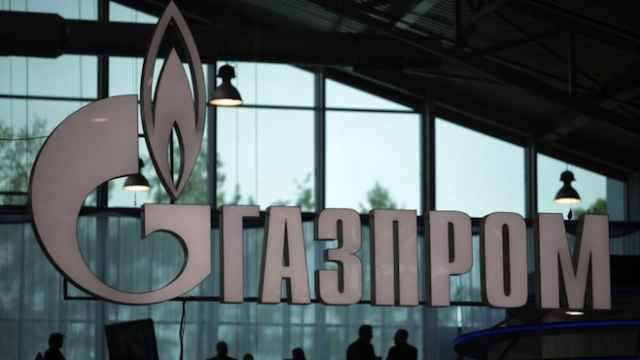Ukraine has a stronger hand to play at talks with Russia on gas supplies thanks to the fall in oil prices, which has dragged down gas prices, and after showing it can live on less.
Neither side wants to give way at talks on a new supply deal that are expected to start soon — but both need each other.
Russia, in financial crisis, needs the Ukraine market and the revenue it sends to the budget.
Although a milder winter and a scramble for other sources has shown Ukraine can survive with less gas from Russia, it still needs it to cover demand and fill storage facilities to ensure a stable supply to Europe, which gets around a third of its gas needs from Russia, roughly half via Ukraine.
Kiev also needs low prices as it struggles to fund its budget.
The sticking point in talks, which have yet to be agreed, will be whether Moscow will leave a discount in place or agree on a new formula proposed by Ukraine's Naftogaz.
After Russia cut supplies in mid-June, the European Commission helped negotiate a "winter gas deal package," which meant Kiev resumed buying Russian gas at a price of $378 per 1,000 cubic meters in the fourth quarter.
That price included a discount of $100 per 1,000 cubic meters. The agreement expires on April 1.
A source at Russian gas producer Gazprom said: "We don't support the idea of a new discount after April 1. … But this is not for Gazprom to decide."
The discount was linked to Russia's naval fleet in Crimea, Moscow's annexation of which was not recognized by Ukraine or the West.
"Ukraine argues the [Crimea] incorporation is not legal so the discount is valid," said Andrei Belyi, associate professor at the Center for EU-Russia Studies at the University of Tartu, Estonia.
Plunging Oil
Gazprom's contracts are linked to crude oil and refined oil product prices, with gas prices lagging oil by six to nine months. Crude has fallen almost 60 percent since last June.
"The gas price for Ukraine should be at around $360-$370 in April even with no discount. It will start to fall from May and is likely to be at $320-300 as an average for the second quarter," said Alexander Kornilov, analyst at Alfa Bank.
Neither side has announced the first quarter price, but Naftogaz's Chief Executive Andriy Kobolev has suggested prices may fall under $340 in January-March and further in the summer.
He also said that Kiev would cut total imports to around 20 bcm this year, of which 60 percent would be covered by Europe thanks to the expansion of gas pipelines.
At $300 per 1,000 bcm and based on the volumes Kobolev says Kiev needs, Ukraine would save around $620 million compared to the price in the fourth quarter, calculations show. Ukraine's foreign exchange and gold reserves stood $7.53 billion at the end of December.
Gazprom pays around 2 trillion rubles ($29.5 billion) in taxes to the Russian budget annually, money increasingly needed as companies all but cut off from global capital markets due to Western sanctions over Ukraine turn to the state for funds.
"Russia will continue to supply gas to Ukraine — the fact that Russia wants to skip Ukraine as a transit country doesn't mean Russia wants to lose Ukraine as its market," says Valery Nesterov, analyst with Sberbank CIB.
A Message from The Moscow Times:
Dear readers,
We are facing unprecedented challenges. Russia's Prosecutor General's Office has designated The Moscow Times as an "undesirable" organization, criminalizing our work and putting our staff at risk of prosecution. This follows our earlier unjust labeling as a "foreign agent."
These actions are direct attempts to silence independent journalism in Russia. The authorities claim our work "discredits the decisions of the Russian leadership." We see things differently: we strive to provide accurate, unbiased reporting on Russia.
We, the journalists of The Moscow Times, refuse to be silenced. But to continue our work, we need your help.
Your support, no matter how small, makes a world of difference. If you can, please support us monthly starting from just $2. It's quick to set up, and every contribution makes a significant impact.
By supporting The Moscow Times, you're defending open, independent journalism in the face of repression. Thank you for standing with us.
Remind me later.





